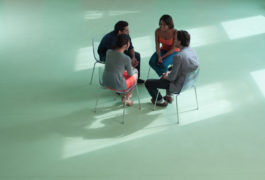Stimming, therapeutic for autistic people, deserves acceptance
Repetitive behaviors such as hand-flapping and spinning may give autistic people a sense of control; instead of discouraging these behaviors, therapists should address triggers upsetting to autistic people.








